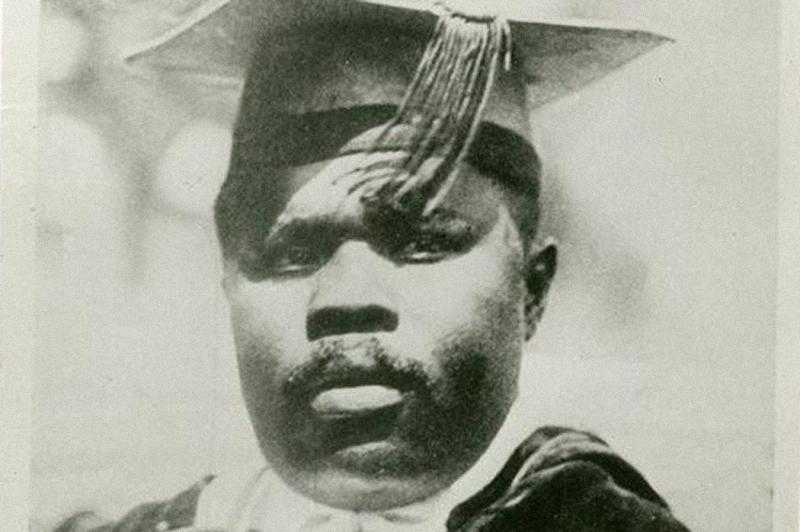Marcus Garvey and the History of Black History
By: Livia Gershon (JSTOR Daily)


Long before the concept of multicultural education emerged,
the United Negro Improvement Association pushed for the teaching of Black history and culture.

What I find interesting here is how different Garvey's approaches were.


While some histories of multicultural education focus mainly on developments within academic circles, Chapman notes that there have always been grassroots groups pushing to move children's education away from Eurocentric outlooks that have dominated US schools. The UNIA was not the first of these, but it was a particularly powerful one.
Garvey was one of many 1920s Black political leaders seeking to "uplift the race" with a variety of programs for political, economic, and cultural change. Garvey's UNIA, formed in 1914, was the largest organization of this kind. At its peak from 1920 to 1924, it had more than a million dues-paying members and two or three times as many people who were engaged with its programs.
The UNIA primarily focused on economic independence for Black people in the US and around the world. When it came to education, Chapman writes, that translated to efforts to prepare young people for skilled labor while building self-esteem and racial pride. At a time when scientific racism was a mainstream idea in academia, the UNIA called for Black Americans to "think of the [Black] race in the highest terms of human living, to think that God made the race perfect, that there is no one better than you."
The UNIA's 1920 Declaration of Rights, adopted at a convention that packed Madison Square Garden, included a number of provisions regarding education. It decried substandard education provided to Black communities, protested against white teachers who insisted on the superiority of their own race, and demanded that Black children learn about "Negro History" in their schools.
Notably, the UNIA did not call for the racial integration of schools. Instead, it sought equal resources for Black schools and curricula that centered Black history, literature, and culture. The organization wanted to keep texts that promoted racial stereotypes out of Black schools and to encourage critical reading skills that would help students identify racial prejudice in information they received from official sources.
Chapman notes that there are significant differences between the UNIA's positions and those of modern multicultural educators. Perhaps most significantly, Garvey and his colleagues focused specifically on the education provided to Black students rather than on the importance of teaching all children about the cultures and histories of many different groups. But the UNIA helped a large segment of the Black public rally around the issue of racism in education and built techniques to combat it that are still relevant today.

Tags
Who is online
37 visitors


By posting to this seed, you are agreeing to abide by the Group's Rules .
This seed doesn't seem to have ever hit the FP.......?
It was because you forgot to check "Promote to front page" before posting. I fixed that.
Thank you!
test
Interesting information and article, sadly in Florida we seem to be avoiding teaching anything about history that isn't ''approved'' by the right.
In a way, they succeeded without the equal resources.
Controlling education was a standard policy of fascist regimes. But of course it would be inflammatory to connect A and B.
What I find interesting here is how different Garvey's approaches were.
A nationalist with a messianic complex who abhorred race mixing, favored racial segregation and viewed the UNIA as a black KKK. "Interesting" in the way Hitler's ideas were.